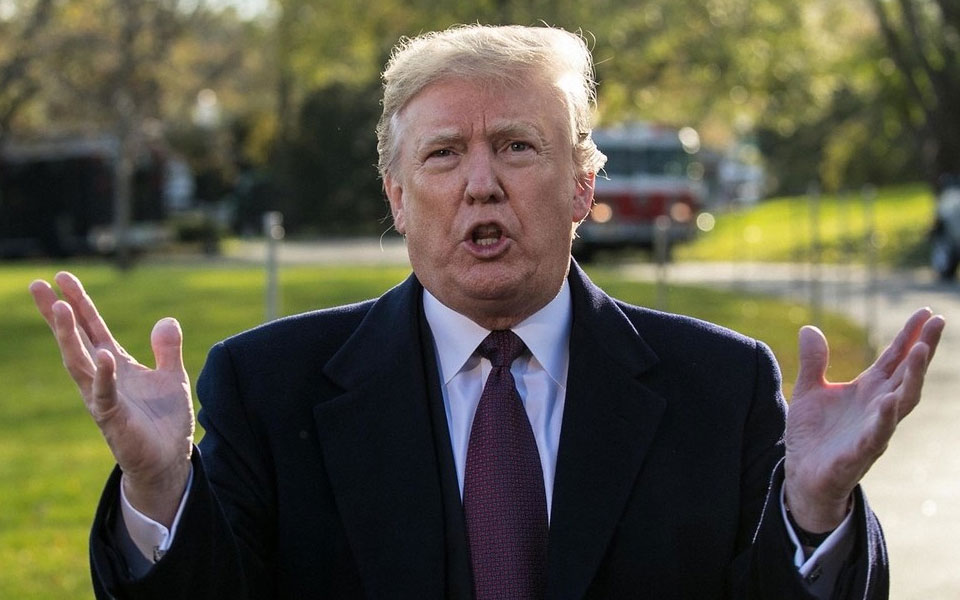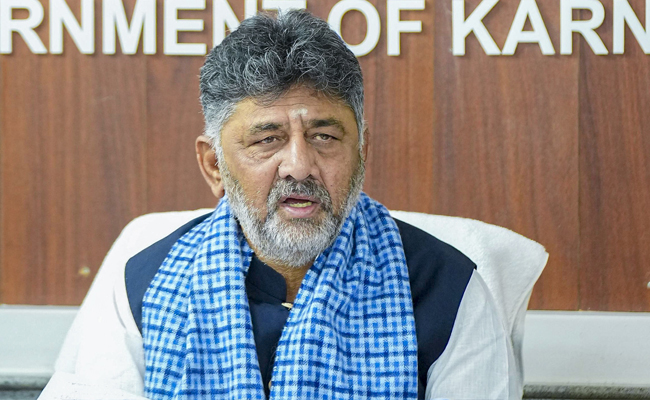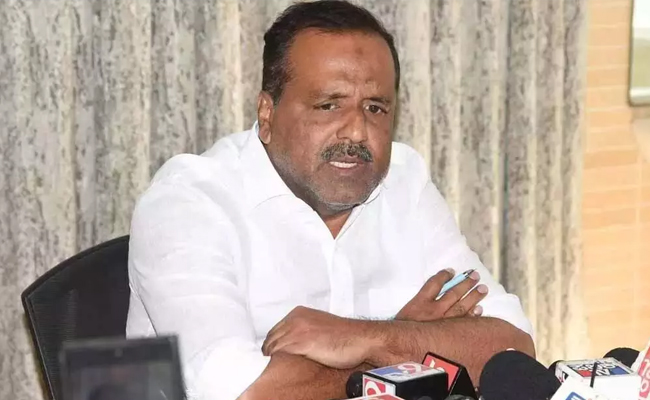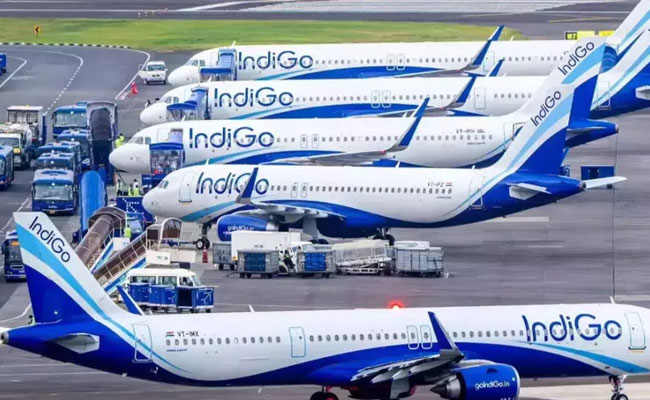Washington, Nov 14 : US President Donald Trump on Tuesday described India as "very good negotiators" as he celebrated Diwali in the White House along with top Indian-Americans and said he is "grateful" for his friendship with Prime Minister Narendra Modi.
"The United States has deep ties to the nation of India and I am grateful for my friendship with Prime Minister Modi," Trump said before lighting the ceremonial Diya in the historic Roosevelt Room of the White House. It is the second consecutive year that Trump has celebrated the largest festival of India and Indian Americans in the White House.
"We're trying very hard to make better trade deals with India. But, they're very good traders. They're very good negotiators. You would say right. The best. So we're working. And it's moving along," Trump said referring to the India-US trade deal negotiations that have started between the two largest democracies of the world.
Along with nearly two dozen top Indian American officials of his Administration, President Trump had invited the Indian Ambassador to the US, Navtej Singh Sarna, his wife Dr Avina Sarna, and his special assistant Pratik Mathur to be present during the White House Diwali celebrations, a rare.
"India is the world's largest democracy and the relationship between our two countries connect as a bulwark for freedom, prosperity, and peace," Trump said.
"Modi is my friend and now her (Ivanka) friend and has great respect for India and the Indian people that I can say," said the US President as he introduced his daughter to the audience, who was present in the room. "Absolutely," replied Ivanka, who had visited India last year. She was the first top official of the Trump Administration to travel to India.
Sarna in his brief remarks thanks the President for this great honour for India and this great Indian community putting. "They feel very welcome here and so integrated with the American society," he said.
"I think, we are looking at one of the best times we ever had in India-US relationship," Sarna said, which was agreed by Trump. "I think, that's true. Very close, closer than ever before," said the US President.
In his remarks, Trump welcomed senior Indian American officials gathered at the White House for Diwali celebration.
"As we light the Diya in the White House we are joined by in a fellowship with all of those who light lamps in their own home, cities and places of worship. America is a land of faith and we are truly fortunate to have these wonderful traditions woven into the tapestry of our national life. And that is true," he said.
Trump said that he is thrilled to celebrate Diwali at the White House.
"I'm honored to host this beautiful ceremony at the White House. Very, very special people. We're gathered today to celebrate a very special holiday observed by Buddhist, Sikhs and Jains throughout the United States and around the world. Hundreds of millions of people have gathered with family and friends to light the Diya and to mark the beginning of a New year: very special new year," he said.
"Our nation is blessed to be home to millions of hardworking citizens of Indian and South East Asian heritage to enrich our country in countless ways. Together we are one proud American family. Do we agree with that? I think so. I think we do. Right? Better, believe it," he said.
Trump said Americans of Indian and South East Asian heritage have done an incredible job and identified several of them by name including the chairman of the FCC, Ajit Pai; Manisha Singh, Acting Under Secretary of the Department of State; Seema Verma, Administrator of the Centers of Medicare and Medicaid Services; Uttam Dhillon, Acting Administrator of the Drug Enforcement Administration; Neil Chatterjee, Chairman of the Federal Energy Regulatory Commission and Raj Shah, the Deputy White House Press Secretary.
The first White House Diwali celebrations was held in 2003 under the then US President George W Bush, who never attended the celebrations in person. A senior administration official represented him. It was mostly held in the India Treaty Room of Executive Office Building, which is part of the White House complex.
Since 2003, Diwali celebrations at the White House has become an annual tradition. In 2009, President Barack Obama lighted the ceremonial lamp in the East room of the White House. The event was attended by about 200 guests.
In 2013, First Lady Michelle Obama celebrated Diwali in the East Room. Immediately before the celebrations, she participated in a Bollywood dance with local students in the State Dining Room. In 2016, Obama celebrated Diwali in the Oval Office with a group of Indian Americans officials from his administration.
In 2016, Vice President Biden hosted a Diwali reception at his official residence Number One Observatory Circle. In 2017 President Trump celebrated his first Diwali in the Oval Office with Amb Nikki Haley, senior officials from his administration and a small group of Indian Americans.
Over the years, it is being celebrated by the Indian Americans in Pentagon and the State Department. For the past several years, Diwali is also being celebrated at the US Capitol by Rep and Senators, being hosted by India Caucus.
Let the Truth be known. If you read VB and like VB, please be a VB Supporter and Help us deliver the Truth to one and all.
Mangaluru (PTI): A high-level committee constituted by the Karnataka government to study the framework adopted by Andhra Pradesh for recognising Urdu as a second official language has submitted its report, backing the state’s move to accord similar status to Tulu.
The six-member panel, headed by K M Gayatri, former Director of the Kannada and Culture Department, examined the procedures followed by the Andhra Pradesh government before granting second official language status to Urdu, officials said on Wednesday.
The committee undertook a field visit to the Andhra Pradesh Secretariat on January 19 and 20 and held consultations with senior officials to understand the legal provisions, administrative mechanisms, and implementation benchmarks involved, they said.
The panel also included Tharanatha Gatti Kapikad, president of the Karnataka Tulu Sahitya Academy, in an advisory capacity.
The report, along with a detailed note outlining Tulu’s historical, linguistic, and cultural significance, was submitted to J Manjunath, Secretary, Kannada and Culture Department, at Vikas Soudha here.
According to official sources, the study was aimed at gathering inputs to help Karnataka frame criteria and procedural guidelines if it decides to grant second official language status to Tulu.
Senior officials present at the submission included B S Manjunath Swami, Director of the Kannada and Culture Department; representatives of the Law Department and the Personnel and Administrative Reforms Department; and office-bearers of various state academies.
Tulu is predominantly spoken in the coastal districts of Dakshina Kannada and Udupi, and in parts of Kasaragod in neighbouring Kerala.
The demand to accord it second official language status in Karnataka has been raised by cultural organisations for several years.





